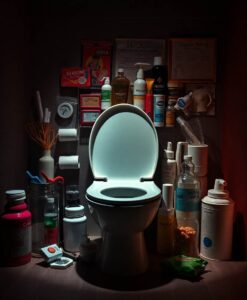A toilet that measures and analyzes waste brings several technical and practical challenges. Sensors must work reliably in a wet, messy environment and distinguish meaningful signals from normal variability. Data privacy and consent are central because health information is deeply personal; anyone considering these tools should know how the company protects and shares the data and what control users have over it.

If technology can make routine health indicators easier to track, the payoff could be broader access to preventative care and more personalized monitoring for people with chronic conditions. The promise raises scientific and ethical questions worth exploring: which biomarkers are truly useful, how accurate and consistent the readings are across users, and how these systems might shape who gets seen and when. Follow the full article to see what the makers report and how this gear might fit into a future where everyday life helps guide better, fairer healthcare.
A new “smart toilet” device aims to help people track their health by analyzing their bathroom trips. The Dekoda device clamps around the rim of any standard toilet, where it uses advanced sensors to scan a person’s waste, says its manufacturer, Kohler Health. With this data,…

